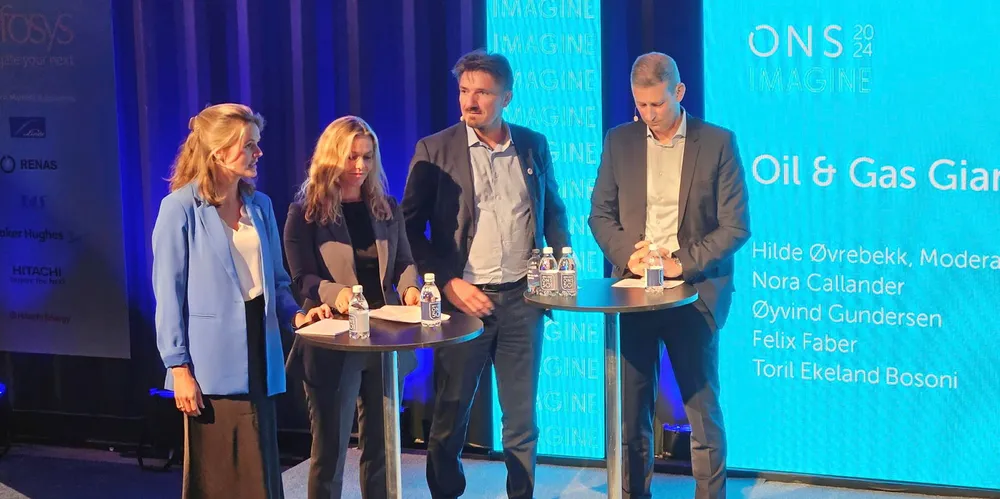Selective, competitive, profitable: European oil majors’ wish-list to invest in renewable projects
Shell, TotalEnergies and Equinor tell ONS audience low carbon spending must meet return requirements

Three of Europe’s largest oil majors have underlined the benchmarks of capital discipline and profitability that must be met before investments in low carbon and energy transition projects can be sanctioned.
Speaking on Monday during the opening day of ONS 2024 in Stavanger, Norway, executives from Shell, TotalEnergies and Equinor insisted that they still have an appetite for renewable and low carbon projects if these requirements are met, as long as they generate adequate returns.
“The challenge is the huge financial exposure any player [involved in] the energy transition has,” said Felix Faber, chief executive for Shell's German unit.
Faber said Shell only decides to invest in low carbon businesses where it has “competitor strength, customer demand and regulatory clarity”.
“Regulatory changes can impact our investment massively,” he added. “We need stability and predictability, a clear environment [that allows taking long-term investment decisions]”.
Oyvin Gundersen, business developer for renewables at TotalEnergies Norway, said the French major looks for a“strong balance sheet combined with capital discipline” when assessing a low carbon project and also keeps a close eye on permitting as a key obstacle to navigate
TotalEnergies earmarked 35% of its $16.8 billion in total spending last year to renewable and low carbon initiatives.
Equinor’s Nora Callander, investor relations officer for ESG at the Norwegian major, described profitability as a “core investment criteria” for the company to invest in transition businesses.
Asked about the appetite from Equinor’s shareholders for the company to remain involved in low carbon projects – Equinor's renewables business booked a net loss of $220 million in the first quarter – Callander said: “It’s important to demonstrate that we are selective, have capital discipline and select the right projects we want to pursue.
“There is general acceptance that returns [for renewables] are lower than in oil and gas, but there is also willingness [to invest there].”
Clean energy spending
The global picture of energy-related investments is evolving fast, with energy transition taking a central focus.
Toril Bosoni, head of the oil industry and markets division at the International Energy Agency (IEA), said in Stavanger that “twice as much money” is now being spent on clean energy as on fossil fuels.
Total investment in the energy sector is expected to surpass $3 trillion in 2024, the IEA predicts. Of this, some $2 trillion would be in clean energy, and $1 trillion in fossil fuels.
“Spending on renewable power and grids, on its own, is now higher than fossil fuels,” said Bosoni.
The IEA estimates that only 1% of total clean energy investment comes from oil and gas producers at present.
Last year, the oil and gas industry spent a total of $28 billion in clean energy investment – a fraction of the $3.5 trillion the industry generated in profits in 2022.